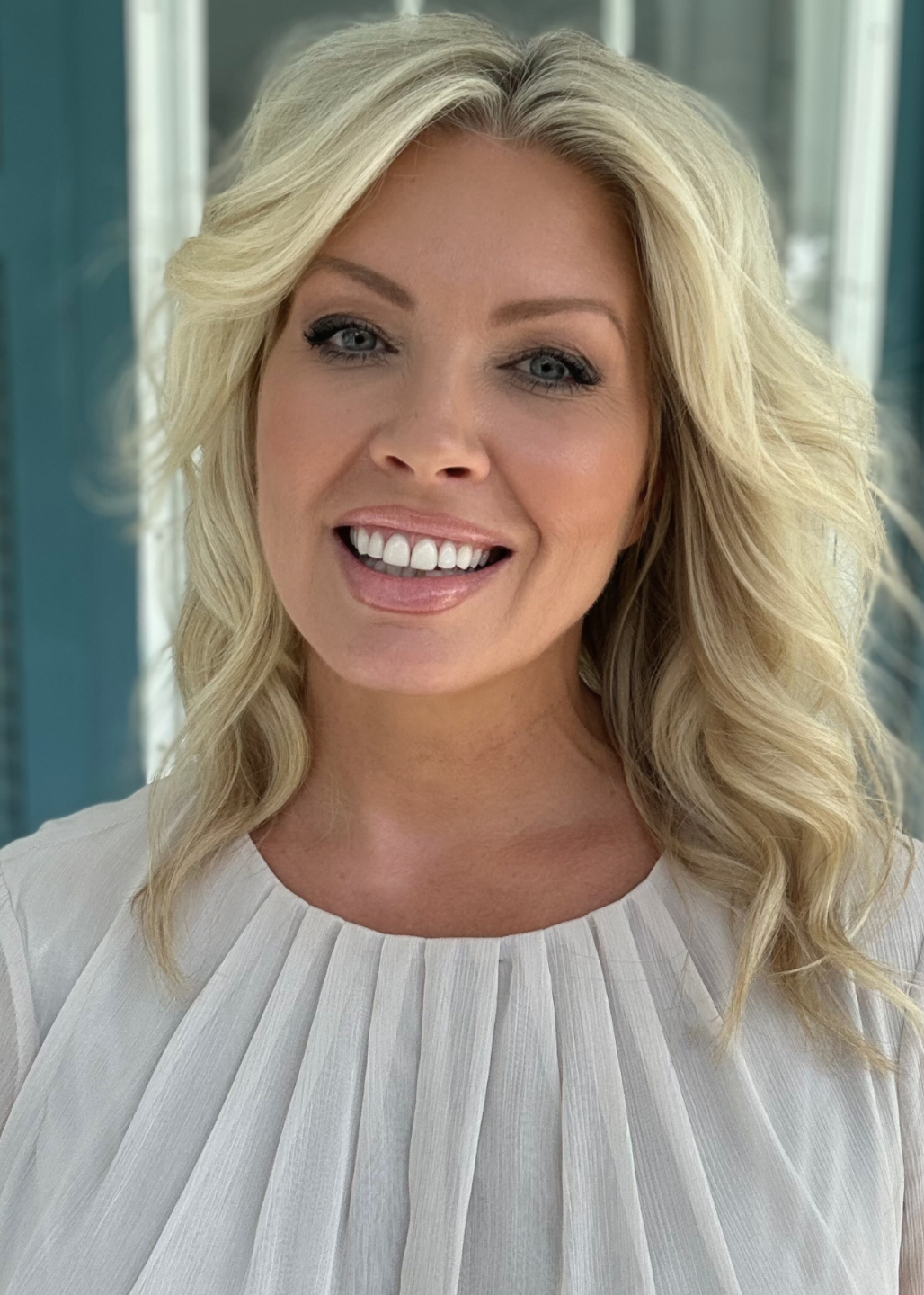- Finding Unshakable Power in a World That Wants to Pull Us ApartPosted 5 months ago
- What could a Donald Trump presidency mean for abortion rights?Posted 5 months ago
- Financial Empowerment: The Game-Changer for Women in Relationships and BeyondPosted 7 months ago
- Mental Health and Wellbeing Tips During and After PregnancyPosted 7 months ago
- Fall Renewal: Step outside your Comfort Zone & Experience Vibrant ChangePosted 7 months ago
- Women Entrepreneurs Need Support SystemsPosted 7 months ago
Financial Empowerment: The Game-Changer for Women in Relationships and Beyond

By Crystal Andrus Morissette
For many women, financial empowerment is a crucial milestone that fundamentally transforms not only their sense of independence but also their relationships, self-worth, and overall quality of life. Yet, this critical piece of the empowerment puzzle is something that a significant percentage of women in the western world still struggle to achieve. In a society that prides itself on progress and opportunity, poverty remains a harsh reality for countless women, and the fear of not being able to make it on their own continues to hold them hostage in unfulfilling and even unhealthy relationships.
The Gendered Face of Poverty in the Western World
Despite the strides made towards gender equality, women in the western world are disproportionately affected by poverty. From the gender pay gap to the burden of unpaid caregiving, systemic issues have long kept women at an economic disadvantage. Women are more likely to work in low-wage jobs, take career breaks to care for children or elderly relatives, and face discrimination that limits their earning potential. As a result, financial insecurity is a reality for millions of women, leaving many with limited choices and a sense of disempowerment.
Financial struggles don’t just limit what women can buy—they impact how women view themselves and how they navigate life. Financial hardship restricts their ability to pursue higher education, access quality healthcare, or even take a day off when they need it most. But beyond these material challenges, there is a deeper emotional toll: the fear of not having enough can leave women feeling trapped, invisible, and powerless.
The Invisible Chains: Staying in Unhappy Relationships
One of the most heartbreaking consequences of this financial disempowerment is that it forces women to stay in unhappy or even abusive relationships. The fear of financial instability often feels far more daunting than the pain of staying in a partnership that lacks love or respect.
How many times have we heard stories of women enduring unhappy relationships because they felt they couldn’t make it on their own? The fear of being unable to pay the rent, support their children, or maintain a basic standard of living becomes a powerful chain that binds them. It’s a dilemma that many women face: the uncertainty of financial survival on their own can overshadow the promise of freedom. For a woman, making the choice to leave often means not only walking away from a partner but also stepping into the unknown—a future full of daunting financial uncertainty.
And this isn’t limited to cases of outright abuse. Even in relationships where the partnership has simply grown stagnant, or where the dynamic has become unhealthy, the financial dependency acts as a powerful barrier to change. For too many women, leaving is a luxury they feel they can’t afford.
Trusting Herself: A Game-Changer for Empowerment
But here’s the game-changing truth: when a woman feels like she can trust herself to take care of herself financially, everything changes.
Financial empowerment isn’t just about having enough money to survive; it’s about having enough money to make decisions rooted in choice rather than fear. When a woman knows she can support herself—when she truly trusts in her ability to navigate her finances—she shows up differently in every aspect of her life. She can walk away from relationships that no longer serve her, speak up for her needs without fear of financial repercussions, and make decisions that align with her values and well-being.
Financial empowerment transforms the dynamics of relationships. No longer dependent on someone else to provide for her, a woman is free to choose relationships based on love, respect, and shared values—not necessity. She can set boundaries, advocate for herself, and, if needed, walk away. This kind of empowerment allows her to engage with her partner as an equal, bringing a sense of confidence that positively affects not just romantic relationships, but also friendships, family ties, and professional connections.
When a woman trusts herself financially, the entire framework of her relationships changes. It shifts from a place of fear—where she may feel the need to appease, tolerate, or submit—to a place of genuine connection. In friendships, it means having the courage to be authentic rather than shrinking or pretending. In professional settings, it means asking for the promotion or raise she deserves, and believing she is worth it. Financial empowerment gives a woman the ability to write her own story, and to do so with confidence, grace, and power.
The Path to Financial Empowerment
So, what does it take to reach this place of financial self-trust? The path to financial empowerment starts with education and awareness. It’s about understanding money—how to earn it, manage it, invest it, and make it work for you. But it’s also about understanding your “money story”—the beliefs and experiences around money that shape how you view and interact with it today. Many women have internalized narratives from their upbringing or past relationships that influence their self-worth and financial decisions. Confronting and rewriting these stories is a crucial step in breaking free from financial insecurity.
Equally important is the level of empowerment you feel deep within, as it impacts how you communicate, negotiate, and compromise. Financial empowerment isn’t just about mastering spreadsheets and budgets; it’s about recognizing your intrinsic worth and confidently asserting it. When you know your value, you can communicate it effectively, negotiate for what you deserve, and make decisions without shrinking or second-guessing yourself. This kind of empowerment means approaching financial discussions—from asking for a raise to setting financial boundaries in relationships—from a place of strength and self-assuredness, knowing that you are deserving and capable.
This is why financial literacy is so critical, especially for women who have been conditioned to believe that money management is “not for them” or that they should defer to a partner. It’s about shifting the internal dialogue from doubt and dependency to confidence and autonomy.
It’s also about challenging societal norms that perpetuate financial dependency. We need to empower young girls to envision themselves as financially independent, capable, and deserving of success. We need to create safe spaces for women to talk about money, learn about it, and support each other in building financial independence.
Additionally, building a supportive community is essential. Women supporting women can create an environment where taking financial risks, like starting a business or leaving an unhappy relationship, feels not only possible but fully attainable. Together, women can dismantle the fear of the unknown and replace it with shared strength and resilience.
The Mother Wound: Breaking the Cycle of Financial Disempowerment
Financial empowerment is often more complex than just learning the skills to manage money; it’s also about healing the deep-rooted emotional patterns that influence how we engage with money. One such pattern is the Mother Wound—a term that describes the pain and beliefs passed down through generations of women, especially regarding scarcity, worth, and survival.
The Mother Wound can manifest unconsciously when our own mothers have struggled financially, and their experiences become ingrained in how they view the world—and how they raise their daughters. When a mother has faced financial hardship, she may carry guilt for not having more to give and envy towards the opportunities that her daughter now has. She may have worked tirelessly to provide what she could, but deep down, she might feel conflicted, wishing she could have done more. These mixed emotions of pride, envy, guilt, and even resentment can be unconsciously projected onto her daughter.
If the daughter hasn’t done the work to heal from this Mother Wound, she may internalize these emotions, leading to a subtle but powerful self-sabotage. The daughter might feel an unspoken pressure not to surpass her mother, fearing that achieving more would betray her or highlight her mother’s perceived inadequacies. This often results in the daughter giving up her own power, holding herself back, or struggling with feelings of unworthiness.
To fully step into financial empowerment, it’s essential for women to recognize these inherited patterns and actively work to heal them. This involves acknowledging the sacrifices our mothers made while also understanding that we do not need to dim our own light to honor them. Healing the Mother Wound is about seeing our mothers as human—flawed, but deserving of compassion—and recognizing that their struggles do not define our potential.
It’s also crucial to heal our own internalized misogyny: the unconscious beliefs we may hold that men are somehow more capable or deserving of financial success. These beliefs can be passed down from generations of women who faced limited opportunities, and they can create an internal battle that makes us feel like we’re overstepping by aspiring for more. When a daughter begins to do the inner work, she can release these limitations, honor her mother’s sacrifices, and still pursue her own financial success unapologetically.
Breaking free from these patterns allows us not only to empower ourselves but also to break the cycle for future generations. By healing the Mother Wound and shedding the guilt and limitations imposed by the past, we can embrace our full financial potential, showing up in our lives and relationships as truly empowered women—confident, self-sufficient, and ready to thrive.
Empowerment Beyond the Numbers
Financial empowerment is ultimately about more than dollars and cents—it’s about freedom. It’s about having choices, finding your voice, and being able to design a life that aligns with your deepest desires. For many women, achieving financial empowerment is the turning point that allows them to leave behind relationships that diminish them and step into their full potential.
When a woman is financially empowered, she becomes unstoppable. Her relationships flourish because they are no longer founded on dependency, but on mutual respect and true partnership. She raises her children to understand the value of self-sufficiency and confidence. She becomes an example to others—showing them what is possible when fear is replaced with self-trust.
Financial empowerment is a hurdle that too many women have yet to clear, but for those who do, it is nothing short of transformational. It is the game-changer that unlocks new possibilities, allows women to walk away from what no longer serves them, and enables them to show up in their relationships—and in their lives—as their most empowered selves.
*******
International best-selling author, Emotional Age and communication expert, and women’s advocate, Crystal Andrus Morissette is a worldwide leader in the field of self-discovery and personal transformation. She is the founder of the S.W.A.T. Institute (Simply Woman Accredited Trainer), an empowerment coach certification exclusively for women that is in over 45 countries that she created in 2009. Crystal is the author of five best-selling books, including The Emotional Edge, which has been featured numerous times both at home in Canada and internationally, including Oprah.com. She is certified in sports medicine, nutrition, and yoga. Learn more at www.SWATInstitute.com







